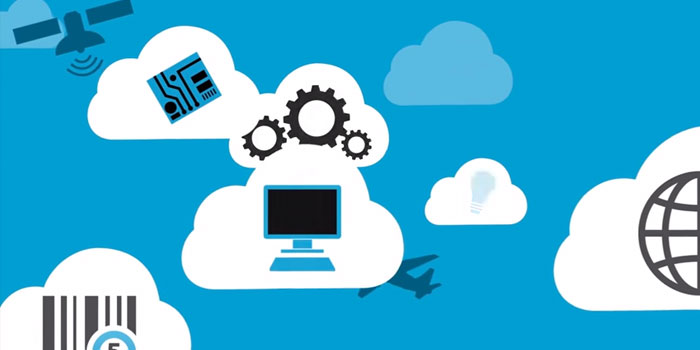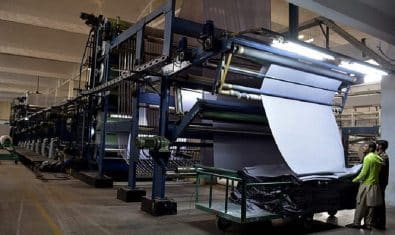While the rest of the world is dangling around chattering about Android and Apple apps on Twitter and Facebook, there is another district in the software industry which is looming with thrilling tales of success and failures. Believe it or not, around 60% of IT and business sector depends on it and one way or another our daily lives are affected by it. No I am not talking about FoodPanda, I am talking about the ERPs, the Enterprise Resource Planning software.
Back in 90’s, we used to call it Management Information System, but some motivated marketing guy replaced the word management with enterprise, and the rest is history.
An Informal Handshake
An ERP is distributed amongst several functional areas. Just like a large business setup, each area serves a separate entity or module. So ideally, you have Sales, Inventory, Production, Export, Purchase, Human Capital, and Finance as inter-related functional domains.
Depending on the requirements and available budgets, customers can either purchase the whole package, or can acquire a certain number of modules. In either case, one should keep in mind that in Pakistan it will cost somewhere around PKR 1 million to 30 million, depending on what you are buying, and that is just the software cost. You have to include the maintenance, hardware, training, and additional resource as well. So the package usually bubbles up to 30% more of what you had in mind from the time marketing guy’s hits you with the first sales pitch.
What Kinds Of ERPs Are There?
In Pakistan, there are two kinds of ERP which you can come across. One, that are locally developed and the others which are prepackaged and have foreign origin. Moreover, businesses have to decide on what to buy depending on their own context and motivations behind their IT guys.
In case of foreign products, it is a matter of throwing a dime and seeing what comes out of the box. SAP, Oracle E Business Suite, and Microsoft’s Dynamics AX are major players trying to claim the market here, alongside dealing with the barriers to entries created by the local ERPs.
For SAP and Oracle, their job was easier as most of the multinational companies acquired these products on the basis of what their foreign offices are using. Even if it is a custom system, they would not hesitate to look into other options.
In case of local ERPs, there are several players in the market, providing standalone solutions as well as a complete suite of applications. Past 20 years, these companies have learned from their experiences and have built a good clientele as well. Since their customers are usually local businesses and entrepreneurs, the price negotiations often turn into blood baths. But hey, you have to stay in the market. The deals are usually closed with discounts and free customer support.
The Betting Reality
Marketers claim that ERPs takes around three to six month to implement, but in reality it usually takes a year, and that still depends on the skills of employees, developers, business analysts and support staff. Software houses know that well, so they cope with the support agreements and training costs. On the other side, the client has to keep the cost under margins, so they either put things on hold or expedite the process by either posting complaints or keeping the requirements on hold.
For local ERPs, it is rather easy to customize the requirements of the clients and since there is a shorter timescale, usually the change management process becomes a celebration for both parties. However, for certain standards and contextual nature of processes such as Production and Equipment maintenance, the high level customization does pose a challenge.
The culture of ERPs and their mix with the business sector has created peace amongst the local and foreign brands. People understood the values of both systems. But then something else came in between the two and changed the way we used to look at the things.
AX: The New Kid On The Block
Like any other major player in the industry, Microsoft has also chipped in with their own product and its related certifications. Just like Oracle and SAP, Microsoft has stuck to the same strategy of getting in the brand ambassadors first and the product later.
Just 5 years ago, a lot of us were quizzical regarding Dynamics AX and what it had to offer. Local market seemed too busy in maintaining their applications, whereas those who were aware, were sure that AX would not gain a foothold like it had in the MENA region. So there were no alarms ringing in terms of competition and market segmentation.
It is not like that AX landed on some spaceship and invaded the tech market and tried to take over the ERP segment. It was there since earlier 2000s and companies such as Evincible, Mazik Global and Maison Consulting were delivering product to their foreign clients, but the game shifted to a whole new level when Systems Ltd, Fergusons, and Mantaq migrated.
AX penetrated the market with immense shout outs and campaigns. Within a short span of time, it posed quite a challenge for the local ERP sellers both in terms of their market share and human resources.
Local market leaders perceived AX like any other foreign ERP and regarded it as harmless, because there was never a credible threat from EBS and SAP. Even the shift of market and resources was always in a balanced state.
But what local market leaders never realized, that this time, the dance has different steps and a new beat.
Pakistan Is A Hard Market for Implementing ERPs
ERP implementations are a hard candy. It involves so many contexts and stakeholders that it just don’t get done easily. For the firms bringing in AX as their prime products, the deployment seemed easier since the product has a good reputation internationally. But there were few cats to bag here, as they found out.
Since it was not locally developed and was not previously experienced by any of the business sector in Pakistan, the product CV depicted almost zero experience regarding business and processes it had to customize and re-develop for local industry. Secondly, the development houses that encompass AX as their prime product were not targeting Pakistan’s market in full form; mostly it was MENA and South African regions.
The second challenge was the resources. Local ERP Business and Functional Analysts had to brush themselves up as per the international standards of AX application. To achieve that, they also needed to get certified, but that was not the difficulty, as most of the professionals scored their marks with distinction. The real challenge was the process re-engineering and gap analysis, and then mapping the same on the application.
Third challenge came in form of the developers. AX is designed in X++, which is founded on similar syntaxes to C++ but the developers were hard to get by. Eventually, the need to rely on resources that are just familiar with X++ or are well versed in C++ became imminent. For business and functional consultants, it became harder to deal with customizations and then communicating the same to developers.
The fourth challenge was the local business mindset. Let’s set aside the name of Microsoft. The real challenge AX marketers had to face were with the businesses which were already running on local ERPs or by the businesses seeking out new solutions. In both cases, the deployment of resources and project management was heavily questioned. The easier part was retail. For some reasons, either due to a lesser amount of customization or due to standard practices, the Retail module was implemented without much of hassles.
Being of foreign origin, AX has relatively higher cost then the local products. Which posed quite a challenge to cross barriers lay by the local ERPs, but as the time has passed, the marketers are closing deals with local clients on the basis of less marginal costs. This penetration is posing a serious challenge for local ERP players.
In any case, the flip flops of resources, project management, costs and communication concerns with lack of local business domain expertise resulted in unnecessary deployment delays, quality assurance problems, and resources which jumped ships for better salary packages. Believe it or not, these past 4 years have been like a thrilling roller coaster ride for ERP industry in Pakistan.
The Pakistani IT industry has faced some serious dilemmas in the past and has always come out with more dignity and confidence. It is true that under the current context, the Local and Foreign ERPs seem like standing against one another, but in reality, the competition has taught the players some valuable lessons, and has provided industry with some fine leadership, talents and business in the same domains. The future however holds more promises than ever.
The Future of ERP in Pakistan
The future has already started taking its shape. The solution providers who have already invested millions in licensing and purchasing fees, have now shifted their gaze to the foreign markets. While some companies are focusing on lower costs and getting clients steadily, others have now merged their operations. As a result, the market has grown more mature with plenty of experienced professionals. Seeing the glass half full, this will definitely have a good effect on software exports.
Since tech giants are now looking to the cloud, the business sectors will need to cope with that change one day. Getting the desired system and making it work for their businesses shall be easier as configurations and data will be available on the cloud. All you need to do is customize that as per your business needs.
As far as the local ERP industry is concerned, well, they don’t need to worry. Business mindset in Pakistan has a long road ahead before it feels the winds of change. In this Game of Thrones of ERPs, only time will tell who comes out on top.


























SAP Is Doing good enough these days to Claim its Presence in Pakistan. Thanks for this documents. Being an SAP Certified Consultant Financial Accounting/Business Process Integration and Project Management. I see a bright future for SAP in Pakistan in coming years.
Oracle is way more established in Pakistan as compared to any other foreign ERP.
And this is exactly why rivals will have a better chance at penetrating pakistan’s market.
Tight competition will lead the industry towards a better future.. however the implementation of SAP, Oracle and Dynamics will definitely change the level and style of business for local entrepreneurs as well as professionals to further get into the international markets where locally developed ERP’s have no worth…
Many businesses still feel reluctant to implement SAP, Oracle etc due to the heavy cost involved into it but in near future… many of them would go for it…
Most of the textile industry is switching to SAP and it is flourishing in Pakistan, Even two major Universities run on SAP SLCM
Odoo is also a comprehensive ERP Solution. it is more flexible then the SAP, Oracle etc.
Can anyone please tell what is the implementation cost of SAP ERP?